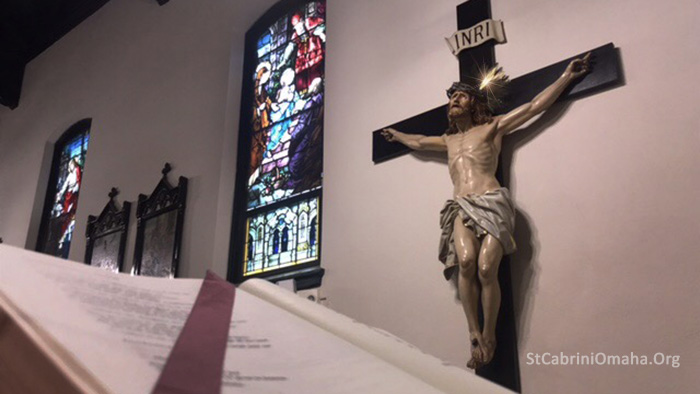Dear Friends,
There is so much talk of violence in our country. There is also a lot of talk about how to reduce the amount of violence. A common answer we hear is with more violence. It might be institutional violence, but it is still more violence. However, that cannot be our Christian answer except when all other solutions have failed.
Is there violence in the Bible? Yes. Violence is prominent in the Bible because violence is a problem the Bible must address. Scripture looks honestly and unflinchingly upon the world as it is, upon God’s people as they are, and so the pages of Scripture often drip with blood.
But Christians cannot use the violent passages in Scripture to justify or normalize violence. For the Christian truth is that God does not bring about our salvation through the worldly means of power. God does not use politics, weapons and war to save us but through the unconventional means of utter powerlessness – through the crucifixion of Jesus.
For on Good Friday, Christians learn the truth that we have a God who would rather die than kill his enemies. All those crucifixes hanging in our homes and in our Catholic churches reveal a God who is nonviolent. The violence of the cross is not what God does; the violence of the cross is what God endures. God does not employ and inflict violence; God absorbs and forgives violence. The cross is where Christ transforms the violence of Good Friday into the love and peace of Easter Sunday.
When this loving Messiah came to earth, people nailed him to a tree. In that moment, the principalities and powers of this world were put to shame. What they called justice and wisdom were revealed as a naked lust for power and control. St. Paul puts it this way in Colossians, “And even when you were dead in transgressions and the uncircumcision of your flesh, Christ brought you to life along with him, having forgiven us all our transgressions; obliterating the bond against us, with its legal claims, which was opposed to us, he also removed it from our midst, nailing it to the cross; despoiling the principalities and the powers, he made a public spectacle of them, leading them away in triumph by it.”
The cross is the great truth telling. The cross is the guilty verdict handed down on the empire and the authority figures. The cross is where the world is forgiven, but not before the world is found guilty.
St. Peter wrote this beautiful poem in his first letter:
“He committed no sin,
and no deceit was found in his mouth.
When he was insulted, he returned no insult;
when he suffered, he did not threaten;
instead, he handed himself over to the one who judges justly.
He himself bore our sins in his body upon the cross,
so that, free from sin, we might live for righteousness.
By his wounds you have been healed.”
How different that is from all the public discourse we are having today about the violence in our culture. Christ advances his kingdom by being a lamb wounded and killed, not by picking up a weapon to attack those who may threaten us. Violence perpetuates violence or as Jesus told Peter, “those who live by the sword, die by the sword.”
Do we truly believe what Jesus teaches or do we choose the ways of the world and continue in the way of violence? Jesus has called you and me to be his followers, his disciples, people who bring healing to the world. We are to live differently than the world lives. We look to only one who saves us, only one who is Lord. Anything less moves us into a realm of idolatry where we seek political leaders and parties as more than they are or should be. Part of our country’s problem with violence today is that we want political systems to fix human problems. We get angry when they do not fix them. Jesus teaches us that the answer is not there.
Next time you look at the cross, see it as God’s answer to your sin and to the violence in our country. He bears it all out of love for us. The all powerful one becomes the lamb that was slain and eternity is changed.
Peace,
Fr. Damian



